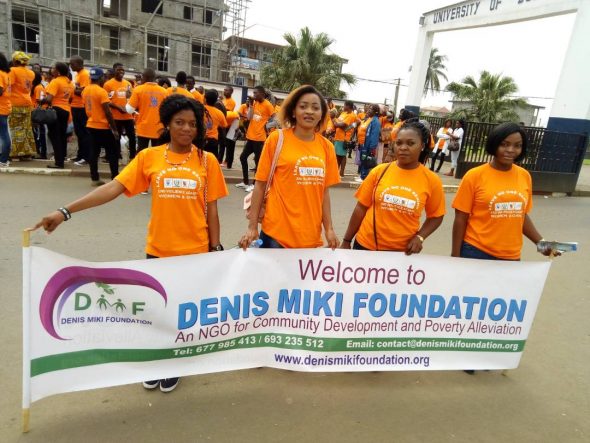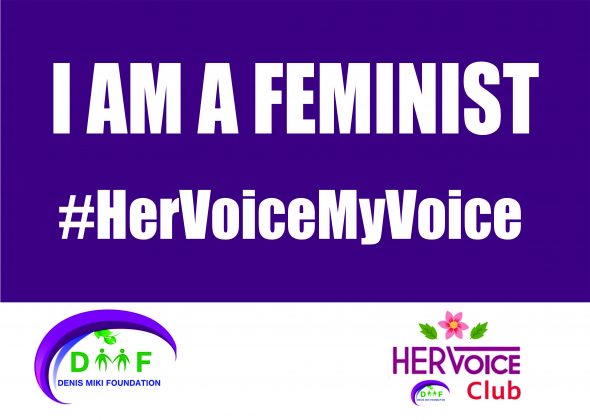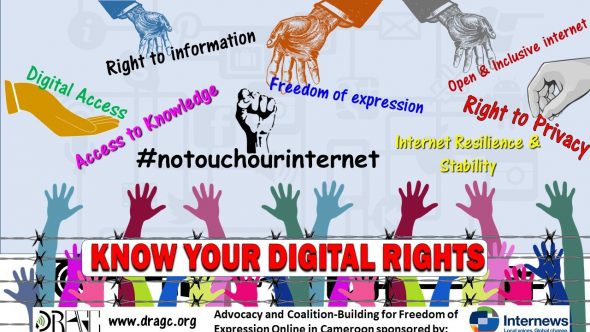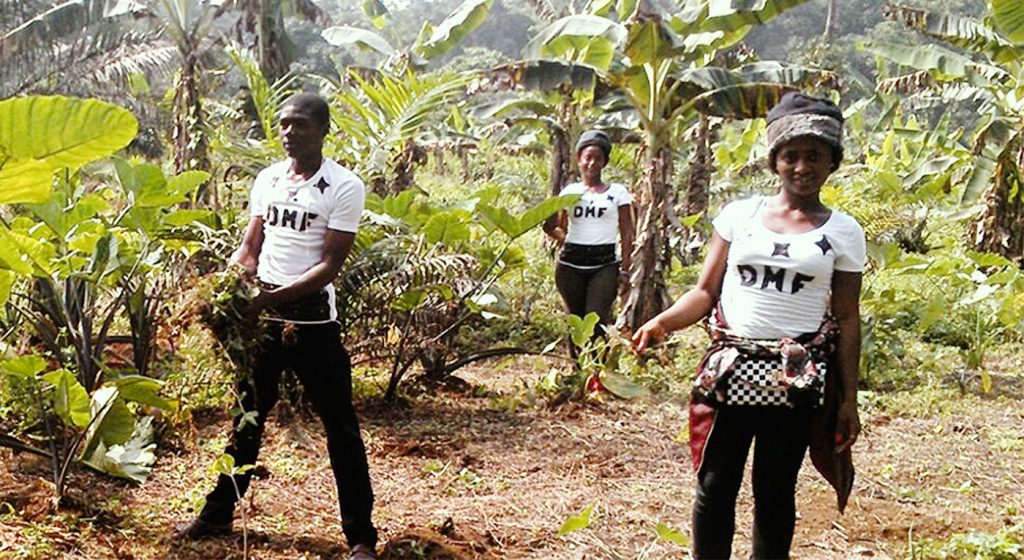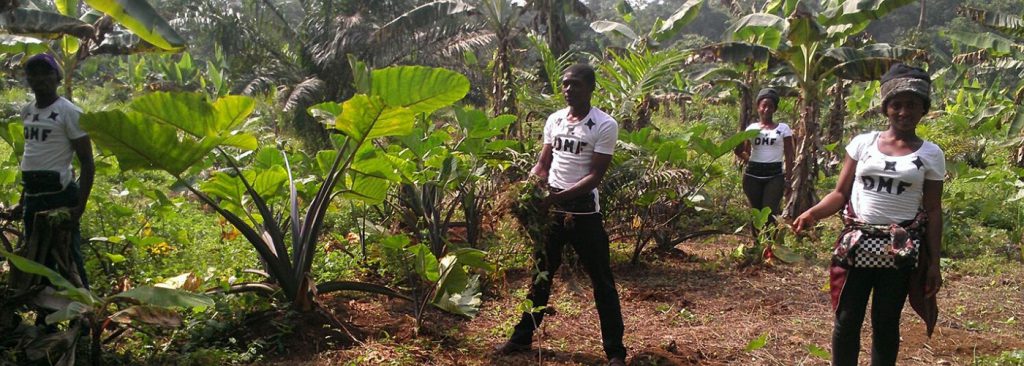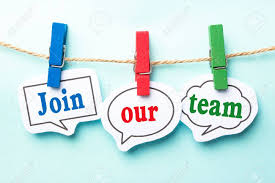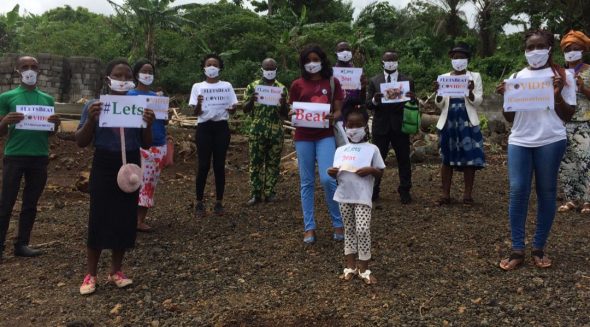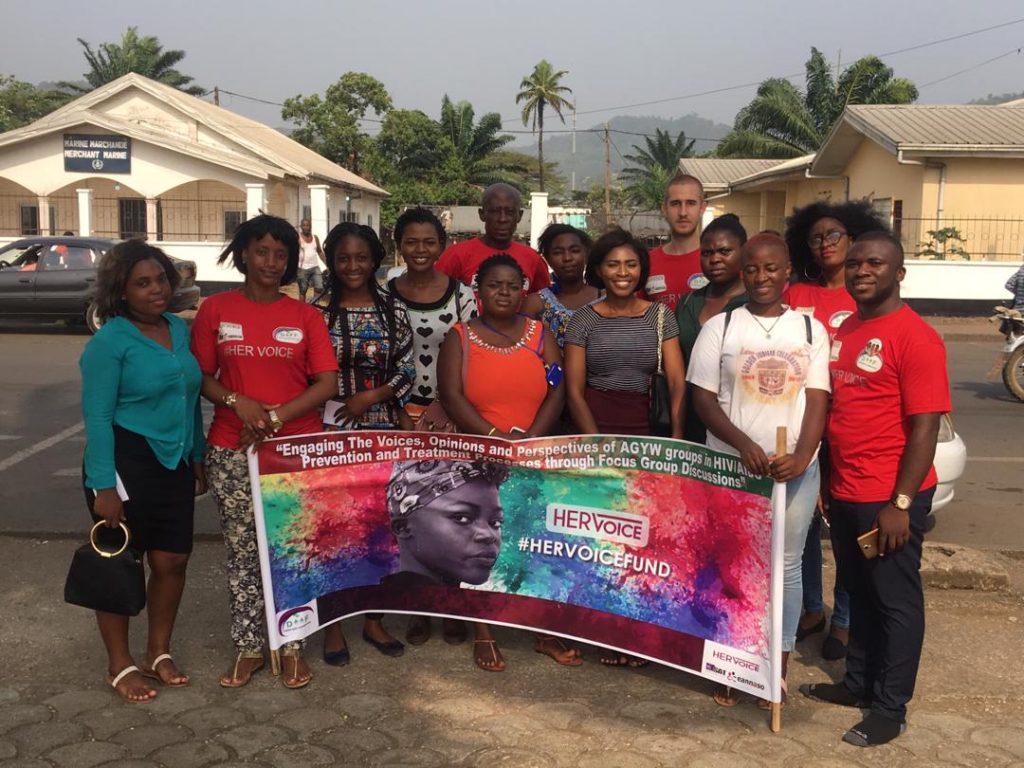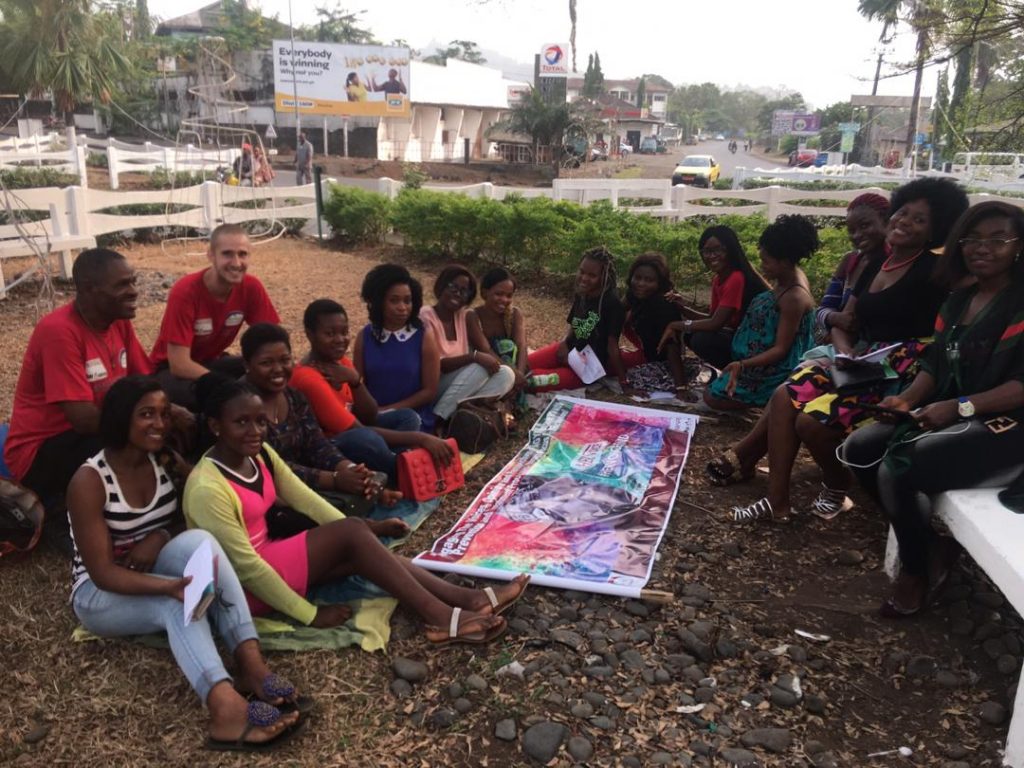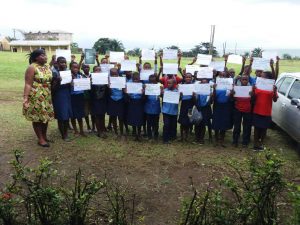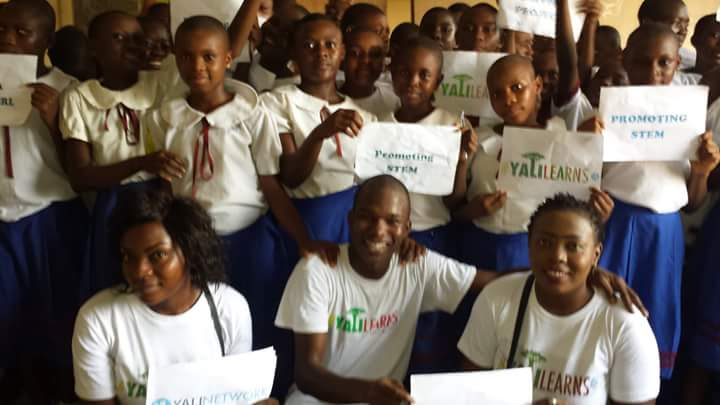Denis Miki Foundation is a non-profitable charity organisation working to sustainably develop the rural and urban poor communities in cameroon. support the development of underdeveloped communities and groups through empowerment, capacity building ,education,talent promotion ,information and communication technologies and wealth creation through crop production and agriculture. leadership enhancement and training of orphans and widows.
DMF ORGANISATIONAL BACKGROUND INFORMATION
Denis Miki Foundation is a women and youth led organisation duly authorised by
Prefectoral order number 163/G.37/D14/VOLI/SAAJP on the 19th of May, 2015. As a
sustainable development, human rights, humanitarian assistance, peace and security organization
our missions are to contribute to the attainment of Sustainable Development Goals (SDGs) and
community development by empowering the people and their communities. We have as
objectives to sustainably develop and enhance the capacities of the poor, vulnerable and rural
areas. Empower the people of these communities and ensure sustainable livelihoods for them
through our programs, services and projects. Provide capacity building and leadership
enhancement trainings to youths, women and the general public.
We believe in the rural and urban poor; in their strength, resilience and capacity to create
a better future. Through grassroots leadership, we connect girls, women and boys to their
capacities, link them to community services for all, and build vibrant, gender equitable
communities where all are able to realize their full potential. We aim to sustainably develop and
enhance the capacities of the poor, vulnerable and rural people and areas and empower youths
and women.
We work to develop effective youth and women leaders – youth and women who have
the desire and capability to access opportunities, whether that’s an internship, employment,
entrepreneurship, or civic leadership. Through leadership programs for youth and women, we
provide young people with skills that make it possible for them to become effective leaders
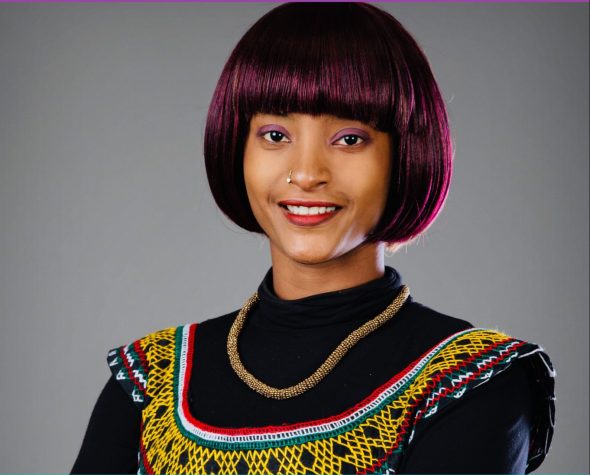
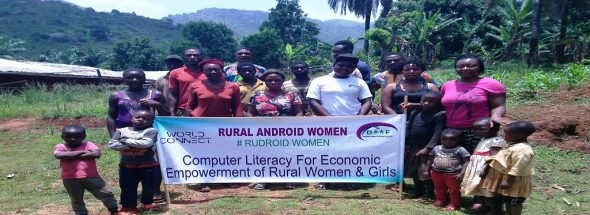
CORE VALUES
The Denis Miki Foundation upholds these core values in our work and promotes them in all our programmes and communities as a whole. These core values guide our actions as we unite and strengthen our efforts with other across to improve lives and enrich communities. Our leadership in the sector is informed by listening deeply to the needs of communities and beneficiaries and seeking insights from many perspectives. Keeping our hearts and minds open is vital to being bold and nimble advocates for the people they serve.
Integrity – We are people of our word, with the courage to do what is right. We believe in modeling this trustworthiness and integrity that earns continuously the public’s high regard for our work.
Innovation – We believe that we can create a better future through innovation and societal change. This sense of hope leads to creative approaches and new models that work.
Curiosity – We challenge the status quo and take the initiative to pursue new ideas
Humility – We are thankful for opportunities and are aware of our limitations
Compassion, Love and Passion – We empathize with and care for those around us.
Diversity, Respect and Inclusion – We respect all people and believe that difference should be celebrated and include all cultures, regions, religions, sexuality and political views.
Excellence – We set high standards for our own achievement and celebrate the achievements of others
Accountability – We are transparent and accountable to all our stakeholders – our communities, constituents, donors, board, staff, volunteers, collaborators, and the government.
Honesty – We trust the truth and live for the truth
Equality – We promote the gender equality and equity agenda in all we do.
Responsible stewardship – We are committed to careful stewardship of all human, natural, and financial resources. We use carefully the time and talents of those working with us, are environmentally responsible, and spend wisely the funds invested in us.
Sustainability – We believe it is important to recognize the value of work by investing in our people. This includes providing learning opportunities for volunteers, interns and staff, as well as compensation and benefits that are adequate to sustain staff members and their families.
Completion of training on our Core Values and ensuring that senior staffs (and those under their charge) are educated with this will form part of Denis Miki Foundation’s annual performance appraisals.
Violations of these values will be dealt with in accordance with Denis Miki Foundation’s Disciplinary Procedure and may result in sanctions, up to and including termination of employment.
As part of the induction given to new staff and Board members to any Denis Miki Foundation entity, Denis Miki Foundation will effectively communicate and provide training on our Core Values.
The Denis Miki Foundation Core Values is linked to and must be read in conjunction with:
• Denis Miki Foundation Whistleblowing Policy
• Denis Miki Foundation Code of Conduct
• Denis Miki Foundation Conflict of Interest Policy
• Denis Miki Foundation Anti-Fraud and Anti-Corruption Policy
• Serious Wrongdoing Reporting and Investigation
1. Entrepreneurship
2. Education
3. Health
4. Human Rights
5. Talent promotion
6. Wealth Creation
7. Women and Girls Empowerment
8. Leadership
9. Capacity Building
10. Governance
11. Democracy
12. Peace and Security
13. Food Security
14. Orphans and Vulnerable Children Care

Healthcare is key to DMF’s holistic approach to help build empowered, healthy generations. Our services include primary health and preventative care, sexual and reproductive health rights (SRHR), pre- and postnatal care, child immunizations, comprehensive HIV care family planning, gender-based violence response, and nutrition program.
DMF is also involved in health sensitizations and advocacy campaigns
The care for Orphans and Vulnerable Children (OVC) and widows is a tool of
individual and community development by DMF.
With DMF’s visits and charity sessions to these groups, they are educated, trained and taught on ways to become leaders of tomorrow, change makers and come out of poverty and gain economic empowerment.
They are also provided job and volunteer opportunities with DMF in priority and are given all of our capacity building and included in our wealth-creation programs
Education is a tool for Sustainable Development. It is the most powerful weapon which we can use to change the world. Education is a powerful tool for development; educated men and women are a force of change in their communities, countries and to the world.
Education is not only achieved within the four walls of a classroom but the responsibility to educate oneself which is not limited only between the four walls of the classroom.
DMF carries out educational projects by educating the general public through radio programs, putting in place Community Libraries for the possibility of every community member to have access to educational materials.
These projects have as objective to create and provide educational resources for local and rural communities who have the majority of illiterate and newly learned people.
This is to provide a reading space, reading and learning materials to assist the children, women and men of those communities through the learning process while forming reading groups and volunteer training sessions.
Educating on entrepreneurial development and the use of talents to build ourselves and our communities is also an axis by which DMF uses Education for Sustainable Development.
Our peacebuilding and mediation programmes and projects mobilize, connect and provide capacities for peacebuilders around the world who are ready to mobilize to
reduce global violence and division.
We run the Peace in Our Communities campaign, uniting local communities and major cities in collaboration with major partners worldwide around a campaign platform to halve conflict and violence by 2030.
We are in the process of working with community members, stakeholders and the Cameroon government to develop a Youth Peace Policy and a Women Peace and Security Policy document to serve as a national framework for the inclusion of youth and women in the peacebuilding processes.
We run grassroots awareness programmes on peacebuilding and capacity building workshops to localize the UNSCRs on Peace and Security, Peace Talks, Peace Walks and Education and awareness creation campaigns to build momentum for safer and peaceful communities.
Poor rural and urban communities remain in high rates of poverty and under-development.
DMF’s community development projects seek to empower the people and their communities and give them access to some necessities for their empowerment and advancement.
DMF is dedicated to providing poor communities with the tools to create bright futures for themselves. Our community programs provide resources to further economic opportunities and advance human rights, creating space for individuals to pave personal paths out of poverty.
DMF mobilizes community members of the communities they work with, to come together to take collective action and generate solutions to common problems.
The aim is to get community wellbeing (economic, social, health, education, environmental and cultural) at the grassroots level following the Human Development Index.
Through inclusive development DMF aims to average achievements on income and non-income dimensions of wellbeing to improve and inequalities in these achievements to fall.
DMF moves from just growth to inclusive development and this involves two steps –a move to evaluate the distribution as well as the average level of wellbeing along any dimension considered, and a move to include dimensions other than income in the assessment of performance. Looking at a particular policy instrument (e.g. investing in infrastructure) from an inclusive development perspective means paying attention to the outcomes beyond income and the distribution of these outcomes.
The Cameroon National Youth Policy (2006) defines a youth as a person between the ages of 15 and 35. According to the general population census of Cameroon published in 2010 the population under 25 years old represented 64% of the entire population of 19,406,100 (currently 22,534,532 World Fact book, 2015).
By this census the median age was 17.7 years (currently 18.4, World Fact book) and more than half of the young populations were women. In Cameroon like in most sub-Saharan African countries young people are considered as the ‘surest guarantee for the future’ and the ‘future in the present’.
But there exist an erroneous, stereotyped perception by adults. For example in politics youths confront a huge level of paternalism, are belittled, treated as apprentice and viewed as inadequate. They are seen as a group that is sensitive to anything that may cause the destabilization of the state.
They are said to love an easy life, are easily manipulated and are given to excesses because of their openness to imported ideologies received through social media
and new technologies. This reflects a misunderstanding of their diversity and quite often results in misdiagnosis and solutions that are not always adapted to the reality of their situation.
Youth constitute a great proportion of the Cameroonian population, with a third of this group aged 18 and 19. This makes them key players in the country’s future and securing the future of good democracy involves preserving the democratic rights of the holders of tomorrow.
Their involvement at their early ages will instill in them the need for their full participation as good citizens of the country. Despite their vitality for tomorrow; high levels of unemployment, poverty, violence in politics, corruption and political malpractices have led to youth marginalization in Cameroon.
Thus the main problem is the lack of knowledge by youths on their need and role to participate in developmental processes and the benefits thereof. Thus the proposed solution via our youth empowerment projects to educate youths on their role in both national and international development.
Women and girls are the change makers, they are the ones who can make an exponential difference in a community, and thus it is really compelling to empower women in the society.
Women re-invest up to 90% of their income back into their families and their communities when compared to men who re-invest only 30-40%. In poor rural communities, women and youth are often the most marginalized and vulnerable members of Society.
Yet empowered women can strengthen family livelihoods, improve food and nutrition security and enhance overall resilience in the face of climate change and socio-economic instability.
Enabled, poor rural and urban women can grow and sell more food, earn money and take greater control of their lives. Recent research of Fortune 5 Companies shows that those companies with more women on their board performed more than those with a lower number by an average of 54% like in return of equity, return of capital.
When you empower women with information, education or even a loan, she can lift up her entire family and even her community; and it is this multiplier effects that an empowered woman has that we believe can turn around our growing country.
Poverty and unemployment greatly plagues Africa and Cameroon in particular. Cameroon’s most recent household survey (ECAM III), undertaken in 2007, revealed that poverty affected an estimated 39.9% of the population, compared with 40.2% in 2001, and that 55% of the country’s poor people live in rural areas.
The ECAM III survey also found that poverty had grown by 3 points in rural areas and poverty continues to be a fundamental rural phenomenon.
Women and children are particularly hard-hit: 52% of people in poor households are women, and half the members of poor households are under 15 years of age.
DMF through her Agriculture and Economic Empowerment projects provide financial empowerment measures, creates jobs and educates the public on economic empowerment methods.
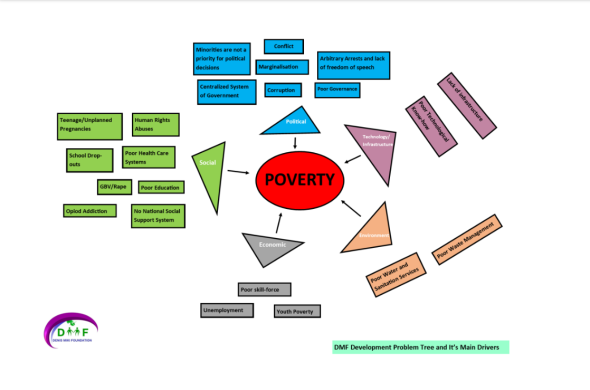
Our Values
• Integrity – We are people of our word, with the courage to do what is right
• Curiosity – We challenge the status quo and take the initiative to pursue new ideas
• Humility – We are thankful for opportunities and are aware of our limitationsn
• Compassion, Love and Passion – We empathize with and care for those around us.
• Diversity, Respect and Inclusion – We respect all people and believe that difference should be celebrated
• Excellence – We set high standards for our own achievement and celebrate the
achievements of others
• Accountability – We are transparent and accountable to all our stakeholders
• Honesty – We trust the truth and live for the truth
• Equality – We promote the gender equality and equity agenda in all we do.
Expected Outputs/Results
DMF’s expected output and results are an empowered people and sustained communities.
DMF’s programs are expected to produce a coherent capacity building agenda to complement both national and international development policies. Some specific outputs include:
• The successful empowerment of target groups of persons
• Develop Policy Frameworks and Action Plans
• The programs will also increase general awareness on several public problems and situations
• Contribution to capacity-building
• Mainstream Gender Strategy: the programs have an explicit gender focus to empower women and girls

